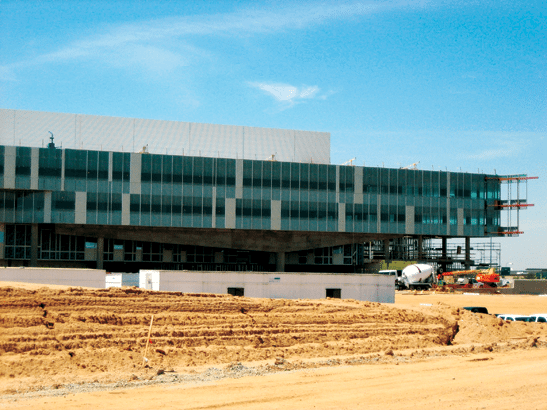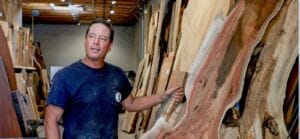By year’s end, Dial Corp. expects to have moved into a new 350,000-square-foot national headquarters in Scottsdale, and for the first time it will house its research and development operations under the same roof.
What’s more, Dial Corp. will be the first tenants in One Scottsdale, a luxury retail and lifestyle community at the northeast corner of Scottsdale Road and Loop 101. In addition to Dial’s presence, One Scottsdale will consist of high-fashion retail shops, upscale restaurants, boutique hotel rooms, office space and a diversity of residential housing.
The move from existing facilities in North Scottsdale was set in motion in 2005.
“Faced with an expiring lease at the end of 2008 on its R&D facility, Dial began searching for a new location,” says Natalie Violi, director of corporate communications for Henkel of America Inc., Dial’s parent company. “The goal was to purchase a large enough parcel of land to house a world class R&D facility and at the same time be located in a desirable location for our employees.
“It was during this process that Dial decided to also move its headquarters to the same location as its R&D facility to inspire collaboration between our scientists and businesses.”
Dial’s current R&D facility is located at 15101 N. Scottsdale Road in Scottsdale, where it has been for 32 years. It is near its current headquarters for the past 11 years at 15501 N. Dial Blvd. in Scottsdale. The current research center across from Kierland Commons likely will be razed as the new Scottsdale Quarters project takes shape. The owners of the existing headquarters building are looking for new tenants.
Violi says housing the headquarters and R&D facility under one roof is a first for Dial, including its former location on North Central Avenue in Phoenix, and before that in Chicago.
The amenities Dial employees enjoyed as neighbors of the Kierland Commons mixed-use development were a factor in choosing the new site, says Brad Gazaway, vice president and corporate counsel, who is the Dial executive in charge of the new building project.
“Finding a location that would afford similar — and possibly more — amenities was an important consideration in our selection process,” Gazaway says. “We believed this not only for the convenience that nearby hotels, restaurants, homes and retailers offer our employees and business on a day-to-day basis, but also the fact that such amenities and creative architecture and surroundings found in mixed-use developments can foster inspiring innovation and development that will bring about increased business productivity and results. Such environments also serve as a valuable platform for employee recruitment and retention.”
By relocating to One Scottsdale, Gazaway says, the move enables Dial to be “a part of an exciting and innovative environment in which our employees will thrive and flourish.”
Total cost of the project, says Gazaway, is “north of $100 million.”
Dial is looking for LEED certification for its new home. Leadership in Energy and Environmental Design (LEED) certified buildings are healthier work and living environments, which contribute to higher productivity and improved employee health and comfort.
Going “green” may add somewhat to the cost, but should result in savings and other benefits in the long run. The building has many “green” aspects, such as workstations designed to be safe, healthy, comfortable and functional.
Gazaway mentions other “green” features. Natural lighting is emphasized, and a roof garden on the fourth floor with trees and benches is ideal for employee use at lunchtime, and for parties and receptions, he says. All of the wood used in construction is from recycled material. Excess materials were separated — wood in one pile and paper products in another — for recycling. Sundt Construction, the project’s general contractor, spearheaded the recycling effort, Gazaway says.
Furthermore, an enhanced heating and air-conditioning system meets LEED standards for performance. Additionally, Dial will provide special parking spaces for carpoolers, spaces for bicycles, changing rooms and a fitness room.
“In today’s environment, Dial wants to be in the forefront of consumer products as far as sustainability measures,” Gazaway says. “We want to show that we’re building a new facility and we are taking our environment seriously. We want to provide a building that our employees can enjoy for years to come. It’s important for us to take a leadership role in establishing new buildings. We’re falling in line with the city of Scottsdale’s mandates. Scottsdale wants all new buildings to fall under this LEED certification. It sets the right tone.”
Violi adds that being environmentally conscious is a core value of Dial’s parent company, Henkel of America.




